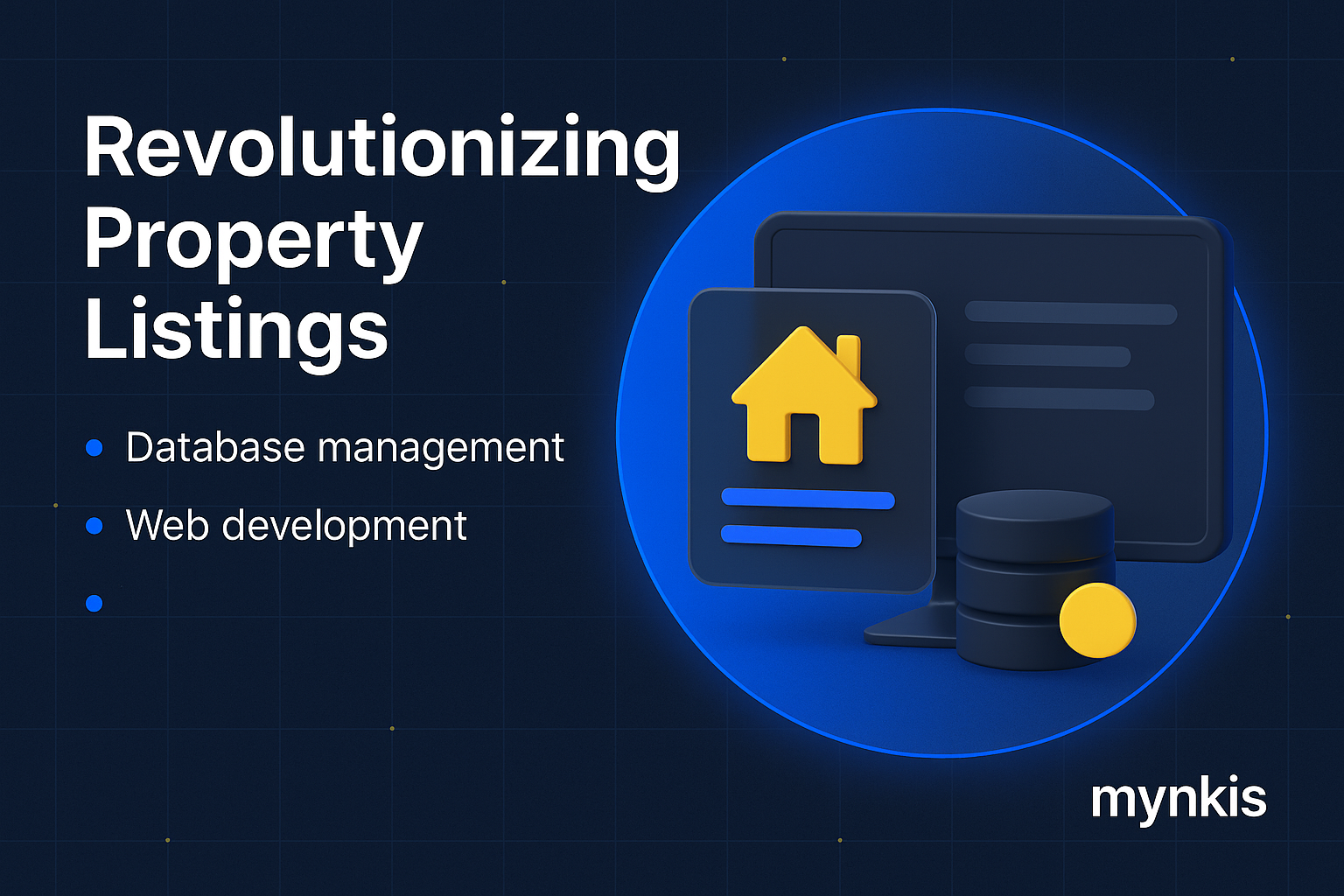Schedule a Demo
In the realm of real estate, the effectiveness of a property listing website hinges on more than just eye-catching designs and user-friendly interfaces. At the core of every high-performing website is a robust database management system. I've seen firsthand how brokers can leverage well-managed databases to not only store essential property data but also to enhance search engine optimization (SEO) for local queries, resulting in a significant uptick in property viewership.
A central aspect of database management in modern website development is the organization and structuring of data. By ensuring that property listings are tagged with comprehensive metadata—such as location details, price range, amenities, and contact information—brokers can make their listings more searchable and relevant to targeted local audiences. This strategic approach not only streamlines the user experience but also aligns with the algorithms that govern search engine results, giving your listings a competitive edge.
Utilizing structured data is a game-changer. When I work with real estate developers, I advocate for implementing structured data markup, which can dramatically increase the visibility of listings on search engines. This technical SEO tactic allows properties to appear as rich snippets in search results, displaying key information directly on the search page. Structured data can also feed into Google's Knowledge Graph, providing potential clients with a snapshot of your listings even before they visit your site.
A dynamic market like real estate demands real-time updates to property listings. Here's where an efficient database management system becomes indispensable. Immediate updates on pricing, availability, and sold listings ensure that visitors to your site always encounter the most current data. This not only preserves the trust of your audience but also ensures better SEO as search engines prioritize fresh, accurate information.
The ease with which users can find what they're looking for can make or break a listing website. Advanced querying capabilities, underpinned by a solid database management system, empower visitors to perform detailed searches, applying multiple filters for everything from bedroom counts to preferred neighborhood amenities. This level of user control not only betters the experience on-site but also aids in aligning your pages with long-tail keywords—a potent SEO strategy for targeting local queries.
As your property listings grow in number, so must the capability of your website's database. Scalability is key. In my interactions with tech leads in web development, scalability issues often arise as the biggest hurdles to growth. A well-planned database structure ensures that your site can handle an increase in listings without compromising on load times, crucial for maintaining high SEO rankings.
With the sensitive nature of real estate transactions, the security of your database cannot be overstated. A secure system protects user data and property details against breaches, maintaining client confidence. It's essential to implement rigorous security measures, from encryption to access controls, to safeguard your database from malicious attacks, which in turn supports the trustworthiness of your site—a direct influencer of SEO.
The insights gleaned from database analytics can be invaluable. By tracking how users interact with your listings, which search queries lead to them, and how long visitors engage with specific properties, you can fine-tune both your database and your SEO strategies. This data-driven approach allows for a continual loop of enhancement, ensuring your website remains relevant and high-ranking in search results.
Selecting the right database management solution is critical. Whether opting for SQL or NoSQL databases, like MySQL or MongoDB, the choice hinges on your specific needs in terms of scalability, data complexity, and real-time capabilities. In talks with leading technologists, there's often a consensus that the architecture of your database will greatly dictate your website's ability to adapt to future real estate market changes.
Integrating your database management system with SEO tools can streamline optimization processes. Tools like Google Search Console and various SEO platforms can pull data directly from your database to help in analyzing keyword effectiveness, monitoring site performance, and refining search engine strategies. This integration is vital for brokers looking to stay ahead in the highly competitive digital real estate landscape.
Looking at industry leaders provides perspective on effective database management. One notable example is a regional real estate firm that witnessed a 30% increase in organic traffic after revamping their website's database to support targeted SEO campaigns. Their new system allowed for precise, localized listing data, boosting relevance and engagement among potential buyers and renters in their key markets.
The future seems bright for database management in the context of real estate web development. Emerging trends such as AI-driven property matching and predictive analytics for market trends suggest that databases will become even more crucial. These technologies rely heavily on accurate, well-organized data, underscoring the need for superior database management for any broker keen on future-proofing their digital presence.
Ultimately, mastering database management in the development of property listing websites is a non-negotiable for brokers aiming to enhance search rankings for local queries. From improving user experience to setting up advanced SEO strategies, the foundation you build with your database will shape your online success in the real estate industry. Engaging with developers who prioritize robust database systems and are in tune with the evolving SEO landscape will ensure your listings keep pace with market demands and technological advancements.
